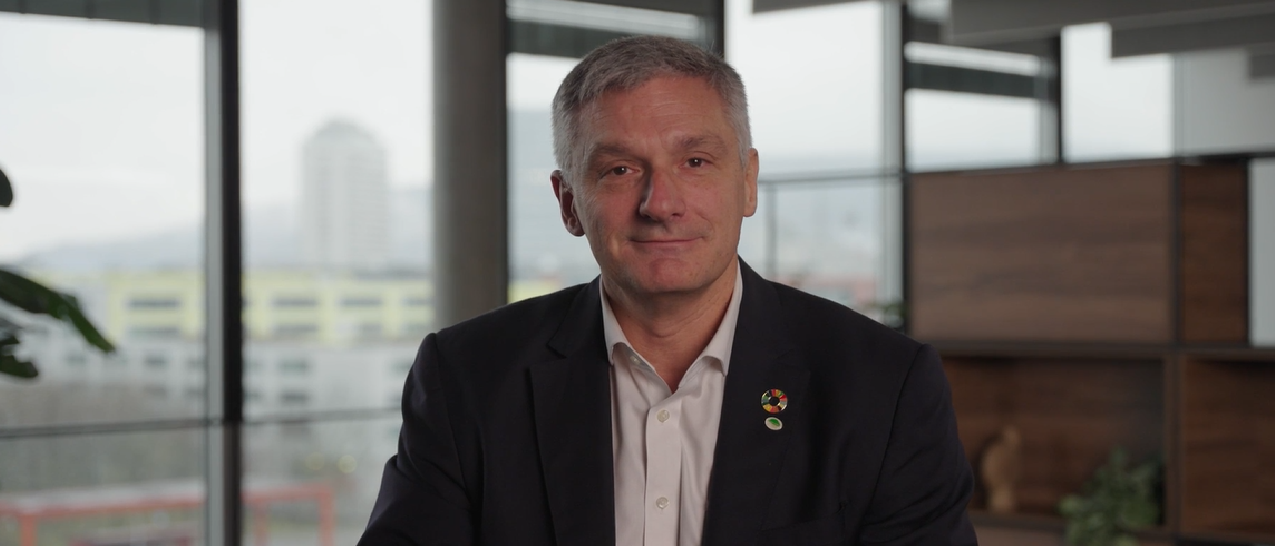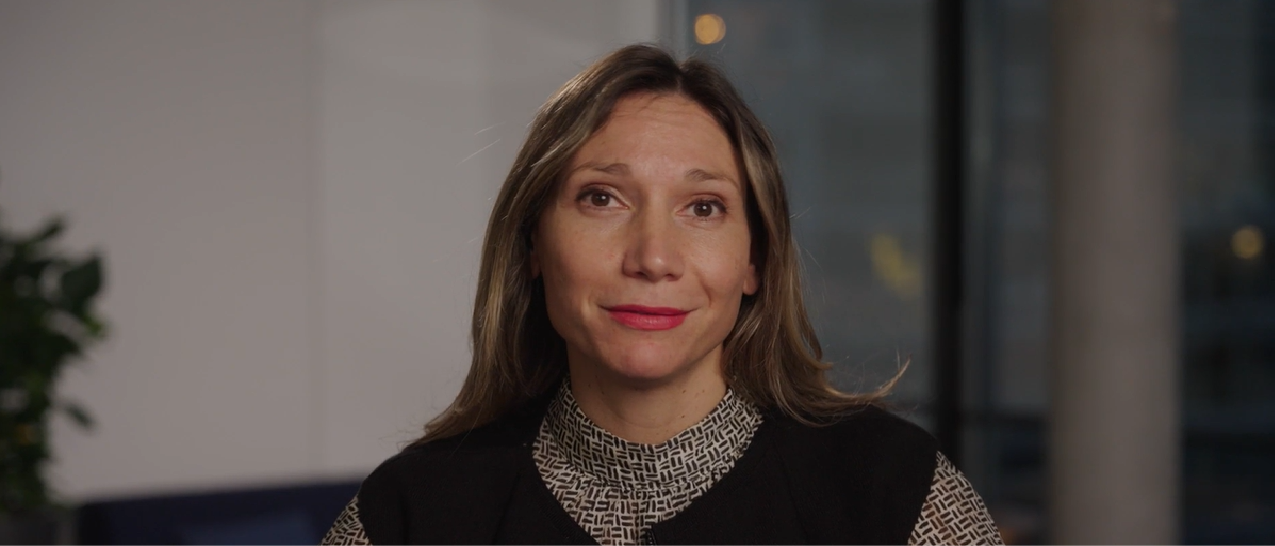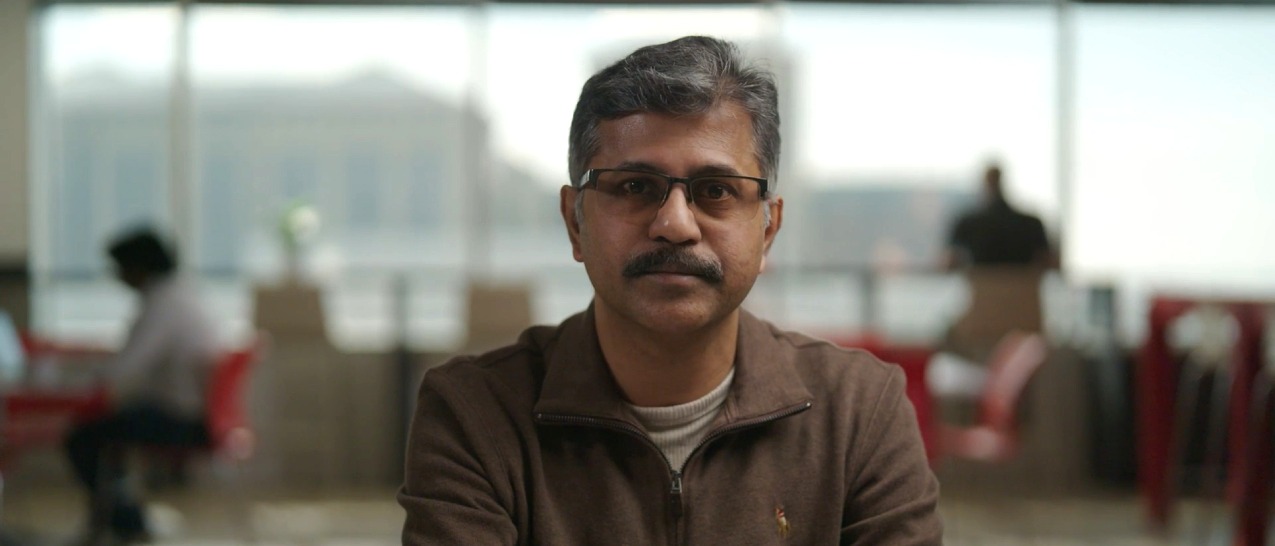

Four big questions with Natalia Pietruszewska
In this new series of interviews for our Hitachi Possible campaign, we go behind the scenes with Natalia Pietruszewska from Hitachi Energy's Power + Graduate Program.
She is both an engineer and an economist with a degree in Industrial Engineering, Corporate Finance and Corporate Strategy and a Master's degree in Economics for Smart Cities and Climate Policy. As part of her Master's degree in Paris she was invited to be an observer at COP27. Natalia is also the Chair of the EMEA Committee for Voice of Youth, a cross-business unit and cross-regional employee-led initiative focused on the development and implementation of grassroots sustainability initiatives.
"Today, we have the opportunity to actually shape the future for the generations to come and that's really powerful."
Natalia Pietruszewska
Hitachi Energy's Power + Graduate Program

What's your favourite thing about working at Hitachi?
There are two things that stand out. Firstly, I really enjoy and appreciate the deep-rooted commitment to sustainability that we embrace across the company - it's not just a slogan, it's actually a purpose that we are all collectively living at Hitachi.
And secondly, our innovation mindset. The culture of innovation is historically very well embedded within Hitachi and a good example of this in action is the Make a Difference internal competition where employees are invited to submit ideas for new products, services, business models or even working environment practices.
Two winning groups receive a golden ticket and the opportunity to incubate their idea with the support and advice of Hitachi executives - I was lucky enough to be part of one of the winning teams and we're currently in the middle of the incubation period. It feels like our own start-up and it's a great reminder that nothing is possible without other people - this is all about collaboration within our team of eight but also the wider Hitachi ecosystem. It's amazing to see diverse people from a variety of teams coming together and to receive such great support from Hitachi executives. The fact that over 300 teams entered tells you a lot about the spirit of innovation and collaboration at Hitachi.

What does sustainability mean to you?
For me, it's all about a holistic approach that comprises economic growth, the wellbeing of society, and the environment and its preservation. But it goes beyond that - our ambition is to fundamentally reshape the interaction between the people and the planet and make the social and biodiversity ecosystems more vibrant and resilient.
From a personal point of view, I have a huge interest in smart cities, having studied this for my Master's, so I was thrilled to see Hitachi Energy sign an agreement with ENOWA and Saudi Electricity Company to design and develop the first phase of our visionary NEOM region transmission system. We will provide three HVDC links with a total power capacity of 9 gigawatts (GW) and there's going to be no roads, cars or emissions - it's a real glimpse into the future.
It's all about balance. On the one hand, we have all the social sustainability and environmental sustainability trends, but at the same time we need to consider statistics such as population growth - smart cities simply have to accommodate that. It's going to be fascinating to be a part of where we go next.
You were invited to be an observer at COP27 - how was that and how do you feel about agreements reached at COP28?
My experience at COP27 was very eye opening. There was a clear focus on solidifying collaborations and establishing transparency and frameworks with specific KPIs, but one thing that really struck me was the social side of climate change. During the conference I had the opportunity to meet many indigenous people from communities heavily impacted by climate change and better understand how it affects their daily lives. We're all invested in this, and it's positive to see tangible commitments around new frameworks, especially when it comes to renewable energy having been made at COP28.
We also need to build on things like loss and damage and encourage people to acknowledge that this goes beyond emissions, it's also about biodiversity and local communities. What gives me hope here is that from an education point of view, more and more people are specialising in environmental sciences, sustainability and CSR - this has got to be good news for the future because if we're better educated, then we're better placed to create policies, frameworks and partnerships that are going to make a difference.
How does it feel to be helping to accelerate the energy transition?
It's extremely rewarding and it's more than just a job - it's a purpose and a commitment, but it brings with it a big sense of responsibility. And so it should. If you know that what you do directly impacts the trajectory of people's local communities and the wider planet and environment, it is so motivating.
Today, we have the opportunity to actually shape the future for the generations to come and that's really powerful. At Hitachi we can see the tangible impact of our solutions, whether it's grid optimisation, the development of new business models or the introduction of renewable energy projects. This range of solutions demonstrates our commitment to sustainability and for me it's so empowering to help try and set an example for industry, communities and individuals. We're on an incredible journey but we'll only get to our destination if we work together.









